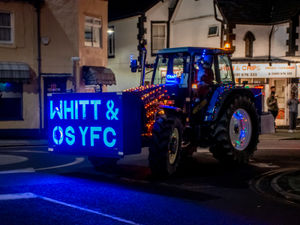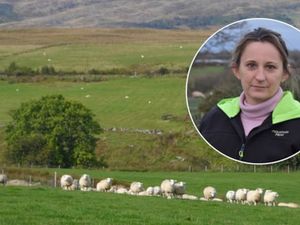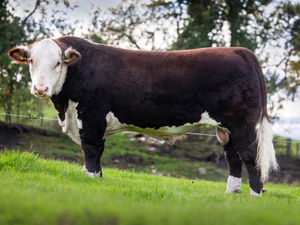Farming Talk: Deferred grazing can reduce winter costs
Closing off pastures for deferred grazing to feed young stock and dry cows over the winter period can reduce feed and housing costs dramatically.
With silage costing two to three times more than grazing and with housing cost anywhere between £0.50 and £1.70 a day for cows, and £0.50 a day for heifers, there are savings to be made.
But it's important to understand what deferred grazing can provide nutritionally. To achieve live weight gains of 0.8kg per day plus maintenance of a 200kg, heifers will require an average of 50MJ per day. To supply this energy, she will need to consume 4.54kg DM per day.
From November onwards grass dry matter can range from 18 to 19 per cent in dry conditions, to 14 to 15 per cent on wet days. The amount of dry matter available to heifers can be measured by plate metering the allocated area to calculate entry covers and residuals. Remember, calculations are not real life, so it is crucial to monitor what you do, how much cows are eating and the quality of the grass.
A four-year AHDB Dairy-funded trial investigated the effect of forage type on the performance of out-wintered dairy heifers on nine commercial farms across GB. Over the course of the trial, the research team at Harper Adams University monitored live weight gains of in-calf spring calving heifers on three different forages – deferred grazing, kale and fodder beet.
No difference in LWG were found, over the course of the rearing period (averaging 0.25kg LWG/cow/day), between the three forages.
There was a wide range in daily LWG between farms (-0.22 to +0.55 kg/cow/day).
The highest LWG were noted on those farms which regularly weighed animals and adjusted their management accordingly.
Forage source did not significantly affect milk production in the first 100 days of lactation, however, those animals outwintered on fodder beet did have a higher proportion of first actation animals in calf at the end of the mating period (95 per cent) compared to the kale (86 per cent) and deferred grazing (88 per cent) forages.
Research showed that variation in heifer performance during the rearing period was greater between individual farms than between different forage types.
Piers Badnell, AHDB Dairy technical extension officer.





